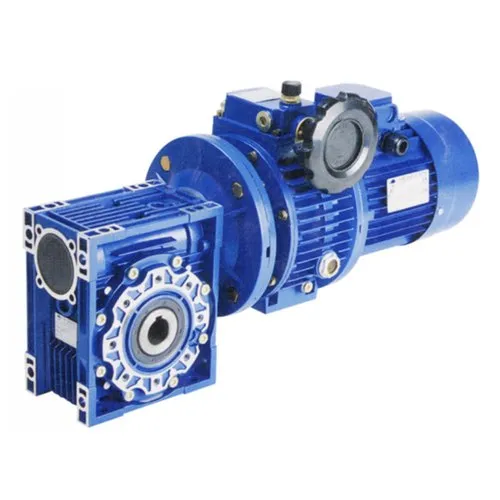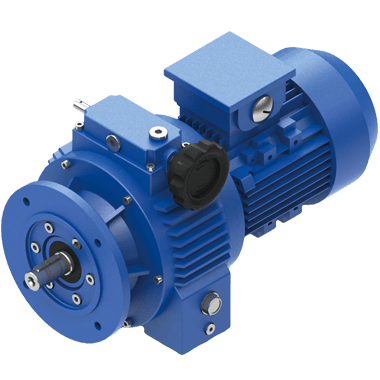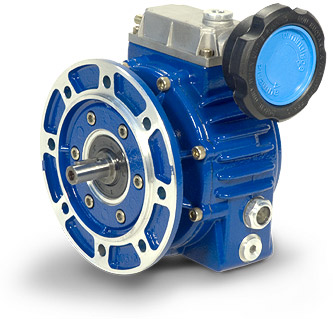Product Description
K Series Helical-Bevel Gearbox Gear Motor With Long Life
Description: K Series Helical Bevel Gearbox
Overview
(1) Input mode: coupled motor, belted motor, input shaft or connection flange.
(2) Right angle output.
(3) Compact structure.
(4) Rigid tooth face.
(5) Carrying greater torque, high loading capacity.
(6) High precision gear, ensuring the unit to operate stably, smooth transmission.
(7) Low noise, long lifespan.
(8) Large overlap coefficient, abrasion resistant.
K series gear units are available in the following designs:
KAZ..Y..Short-flange-mounted helical-bevel gear units with hollow shaft
K…Y…Foot-mounted helical-bevel gear units with CHINAMFG shaft
KAT…Y…Torque-arm-mounted helical-bevel gear units with hollow shaft
KAB…Y…Foot-mounted helical-bevel gear units with hollow shaft
K(KF,KA,KAF,KAB,KAZ)S…Shaft input helical-bevel gear units
KA…Y…Helical-bevel gear units with hollow shaft
KA(K, KF ,KAF, KAB ,KAZ)R..Y..Combinatorial helical-bevel gear units
KF…Y…Flange-mounted helical-bevel gear units with CHINAMFG shaft
KA(K, KF ,KAF ,KAZ)S…R…Shaft input combinatorial helical-bevel gear units
KAF…Y…Flange-mounted helical-bevel gear units with hollow shaft
KA(K, KF ,KAF, KAB ,KAZ)…Y…When equipping the user’s motor or the special 1 ,the flange is required to be connected
Structure:
| K(-) |
K(A) | K(F) | Input power range | Output speed | Output torque |
| Foot-mounted | Hollow shaft output |
Flange-mounted | 0.18-200kw | 0.1-270r/min | Up to 50000Nm |
Input power rating and maximum torque:
| Size |
38 | 48 | 58 | 68 | 78 | 88 | 98 | 108 | 128 | 158 | 168 | 188 |
| Structure |
K KA KF KAF KAZ KAT KAB | |||||||||||
| Input power rating(kw) |
0.18~ 3.0 |
0.18~ 3.0 |
0.18~ 5.5 |
0.18~ 5.5 |
0.37~ 11 |
0.75~ 22 |
1.3~ 30 |
3~ 45 |
7.5~ 90 |
11~ 160 |
11~ 200 |
18.5~ 200 |
| Ratio | 5.36~ 106.38 |
5.81~ 131.87 |
6.57~ 145.15 |
7.14~ 44.79 |
7.22~ 192.18 |
7.19~ 197.27 |
8.95~ 175.47 |
8.74~ 141.93 |
8.68~ 146.07 |
12.66~ 150.03 |
17.35~1 64.44 |
17.97~ 178.37 |
| Maximum Torque(N.m) |
200 | 400 | 600 | 820 | 1550 | 2770 | 4300 | 8000 | 13000 | 18000 | 32000 | 50000 |
Gear unit weight:
| Size |
38 | 48 | 58 | 68 | 78 | 88 | 98 | 108 | 128 | 158 | 168 | 188 |
| Weight |
11 | 20 | 27 | 33 | 57 | 85 | 130 | 250 | 380 | 610 | 1015 | 1700 |
The weights are mean values, only for reference.
Maximum torque means the biggest 1 of the maximum torque related to the different ratio for the specified size.
Rated Power:0.18KW~200KW
Rated Torque:Up to 50000N.m
Gear Arrangement:Bevel Helical Hardened Gearbox
Input Speed:50HZ or 60HZ of 4Pole,6Pole and 8pole motor
Ratio:5.36~192.18
Our company :
Customer visiting:
FAQ:
1.Q:What kinds of gearbox can you produce for us?
A:Main products of our company: UDL series speed variator,RV series worm gear reducer, ATA series shaft mounted gearbox, X,B series gear reducer,
P series planetary gearbox and R, S, K, and F series helical-tooth reducer, more
than 1 hundred models and thousands of specifications
2.Q:Can you make as per custom drawing?
A: Yes, we offer customized service for customers.
3.Q:What is your terms of payment ?
A: 30% Advance payment by T/T after signing the contract.70% before delivery
4.Q:What is your MOQ?
A: 1 Set
Contact:
If you are interested in our product, welcome you contact me.
Our team will support any need you might have. /* January 22, 2571 19:08:37 */!function(){function s(e,r){var a,o={};try{e&&e.split(“,”).forEach(function(e,t){e&&(a=e.match(/(.*?):(.*)$/))&&1
| Application: | Motor, Machinery, Industry |
|---|---|
| Function: | Change Drive Torque, Speed Changing, Speed Reduction |
| Layout: | Right Angle |
| Hardness: | Hardened |
| Installation: | Horizontal Type |
| Step: | Three-Step |
| Customization: |
Available
|
|
|---|

Can variator motors be used in both fixed and variable speed applications?
Yes, variator motors can be used in both fixed and variable speed applications. Here’s a detailed explanation:
Variator motors, also known as variable speed motors or adjustable speed motors, are designed to provide flexibility in adjusting the motor’s speed according to the specific requirements of the application. This versatility allows them to be used in a wide range of applications, whether the desired speed is fixed or variable.
Here are some key points to consider regarding the use of variator motors in fixed and variable speed applications:
- Fixed Speed Applications: In fixed speed applications, where a constant speed is required throughout the operation, variator motors can still be used effectively. The motor can be set at the desired fixed speed during installation or through the control system. The advantage of using variator motors in fixed speed applications is that they often offer high efficiency and reliable performance, which can contribute to energy savings and reduced maintenance needs.
- Variable Speed Applications: Variator motors are particularly well-suited for variable speed applications, where the speed requirements may change based on different operational conditions or process demands. These motors allow for precise control over the motor’s speed, enabling optimization of the application’s performance. By adjusting the speed according to the specific requirements, variator motors can improve energy efficiency, enhance process control, reduce wear and tear on mechanical components, and enable better synchronization with other system elements.
- Speed Adjustment Range: Variator motors offer a wide range of adjustable speeds, allowing them to accommodate both fixed and variable speed applications. The speed adjustment range can vary depending on the specific model and type of variator motor. Some motors may have a limited range, while others can provide a broad range of speeds, spanning from low RPMs to high RPMs. When selecting a variator motor for a specific application, it’s essential to consider the required speed range and ensure that the motor can operate within those speed limits.
- Control Options: Variator motors often come with various control options that allow for easy adjustment of the motor’s speed. These control options can include manual control through potentiometers or dials, digital control through interface panels or keypads, or even programmable control through communication protocols such as Modbus or Ethernet. These control options facilitate the use of variator motors in both fixed and variable speed applications, as they provide flexibility in setting and changing the desired speed.
- Application Versatility: Variator motors are versatile and find applications in various industries and sectors. They can be used in applications such as conveyors, pumps, fans, compressors, mixers, machine tools, HVAC systems, robotics, and more. This versatility demonstrates how variator motors can be utilized effectively in both fixed and variable speed applications across different industries.
Overall, the use of variator motors offers flexibility and adaptability to meet the speed requirements of different applications, whether fixed or variable. By selecting the appropriate motor model, determining the desired speed range, and utilizing the available control options, variator motors can provide efficient and reliable performance in a wide range of applications.

Where can individuals find reputable suppliers or manufacturers of variator motors?
Individuals seeking reputable suppliers or manufacturers of variator motors have several options available. Here’s a detailed explanation:
1. Online Directories and Marketplaces: Online directories and marketplaces dedicated to industrial products and components can be a valuable resource. Platforms like Thomasnet, Alibaba, and GlobalSpec provide comprehensive listings of variator motor suppliers and manufacturers. These platforms often include detailed company profiles, product catalogs, and customer reviews, enabling individuals to assess the reputation and credibility of potential suppliers.
2. Trade Shows and Exhibitions: Attending trade shows and exhibitions related to the industrial or manufacturing sector can provide direct access to variator motor manufacturers and suppliers. These events offer opportunities to explore a wide range of products, interact with industry professionals, and establish contacts with reputable companies. Popular trade shows in the field include Hannover Messe, SPS IPC Drives, and Automation Fair.
3. Industry Associations and Organizations: Industry associations and organizations focused on electrical motors, automation, or specific industrial sectors often maintain directories or member listings that can help individuals find reputable variator motor suppliers. Examples include the International Electrotechnical Commission (IEC), National Electrical Manufacturers Association (NEMA), or sector-specific associations like the Robotics Industries Association (RIA) or the Packaging Machinery Manufacturers Institute (PMMI).
4. Consulting with Industry Professionals: Seeking advice and recommendations from industry professionals, such as engineers, consultants, or system integrators, can provide valuable insights on reputable variator motor suppliers. These professionals have experience with various suppliers and can offer guidance based on specific application requirements and industry knowledge.
5. Referrals and Word of Mouth: Networking within professional circles or reaching out to colleagues and peers in the industry can yield recommendations for reputable variator motor suppliers. Word of mouth referrals from trusted sources can provide firsthand information about the quality, reliability, and customer service of different suppliers.
6. Online Research and Reviews: Conducting online research and reading reviews about variator motor suppliers can help individuals gauge their reputation and assess customer satisfaction. Online forums, industry-specific websites, and social media platforms can provide insights and feedback from other customers who have worked with variator motor suppliers.
When evaluating variator motor suppliers or manufacturers, it’s important to consider factors such as their experience in the industry, product quality, certifications, technical support, warranty terms, and after-sales service. Requesting product samples, specifications, and references from potential suppliers can also help individuals make informed decisions.
By leveraging these resources and conducting thorough research, individuals can find reputable suppliers or manufacturers of variator motors that meet their specific requirements and ensure the quality and reliability of the products they purchase.

What is a variator motor, and how does it differ from traditional motors?
A variator motor, also known as a variable speed motor, is a type of motor that allows for adjustable speed control. Unlike traditional motors that operate at a fixed speed, variator motors provide the ability to vary the rotational speed to meet specific application requirements. Here are some key points differentiating variator motors from traditional motors:
- Speed Control: The primary difference between variator motors and traditional motors is the ability to control the speed. Traditional motors typically operate at a fixed speed determined by the motor’s design and the frequency of the power supply. In contrast, variator motors feature mechanisms that allow for adjustable speed control, enabling users to increase or decrease the rotational speed as needed.
- Operating Principle: Variator motors achieve variable speed control through various mechanisms. One common approach is the use of adjustable transmission systems, such as variable frequency drives (VFDs) or mechanical gearboxes. These systems allow for changes in the motor’s output speed by adjusting the input power frequency or gear ratio. Other variator motors may employ electronic or hydraulic control systems to modulate the motor’s speed based on input signals or user commands.
- Application Flexibility: The ability to adjust the speed makes variator motors highly versatile and suitable for a wide range of applications. They can be employed in situations where precise speed control, energy efficiency, or the ability to adapt to changing operational requirements is critical. Variator motors find applications in industrial machinery, conveyors, pumps, fans, and other systems where speed modulation is beneficial.
- Energy Efficiency: Variator motors often exhibit higher energy efficiency compared to traditional motors, especially when operating at reduced speeds. By adjusting the motor’s speed to match the required output, variator motors can minimize energy wastage associated with running at fixed speeds. This energy-saving capability can lead to reduced operating costs and improved overall system efficiency.
- Cost and Complexity: Variator motors, due to their speed control capabilities, can be more complex and costly compared to traditional motors. The additional components required for speed modulation, such as variable frequency drives or control systems, can increase the overall system complexity and initial investment. However, the benefits of adjustable speed control and energy efficiency often outweigh the higher upfront costs in many applications.
In summary, a variator motor allows for adjustable speed control, enabling users to change the rotational speed to meet specific application requirements. With their ability to modulate speed, variator motors offer greater flexibility, energy efficiency, and application versatility compared to traditional motors.


editor by CX 2024-04-16